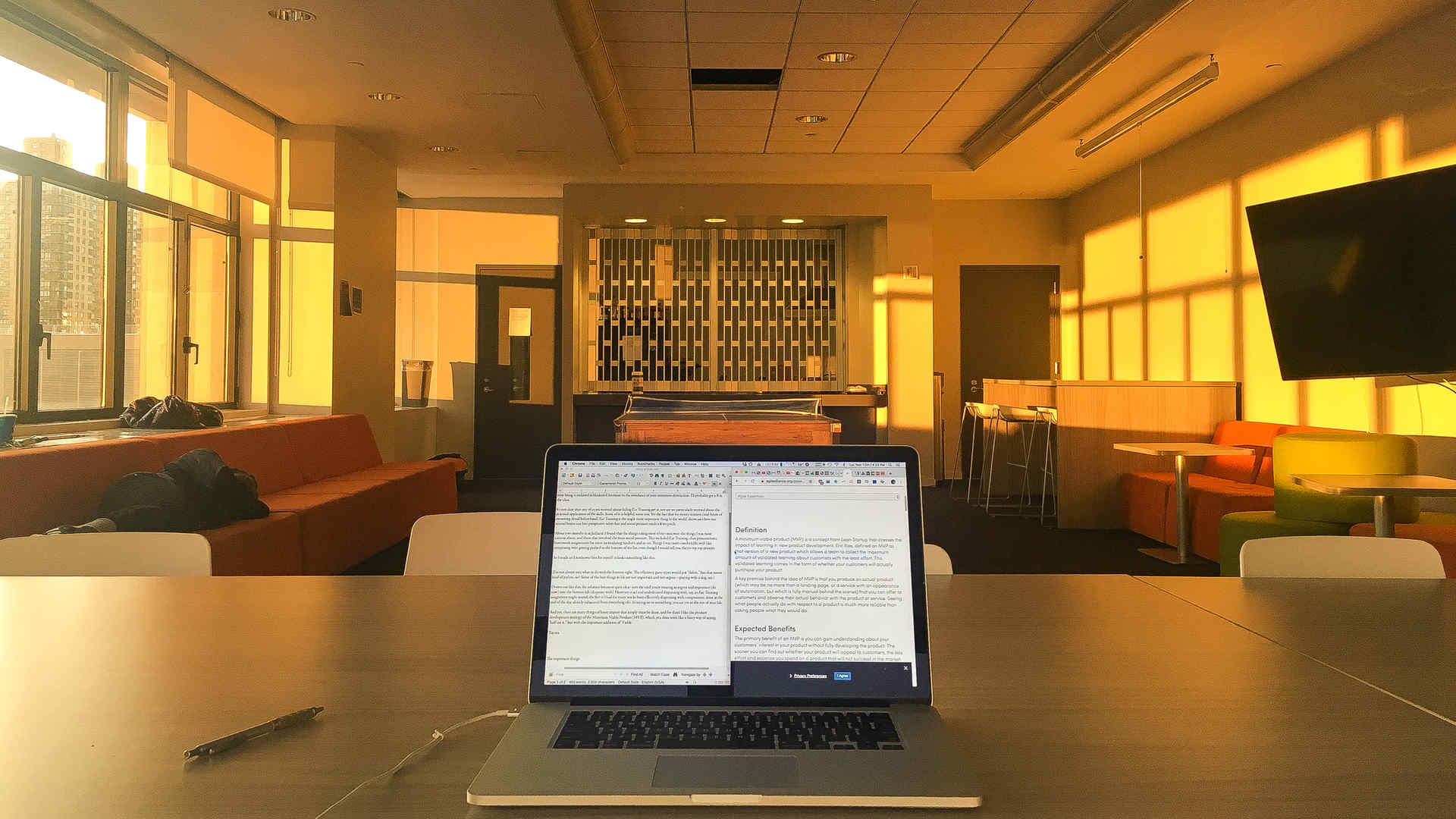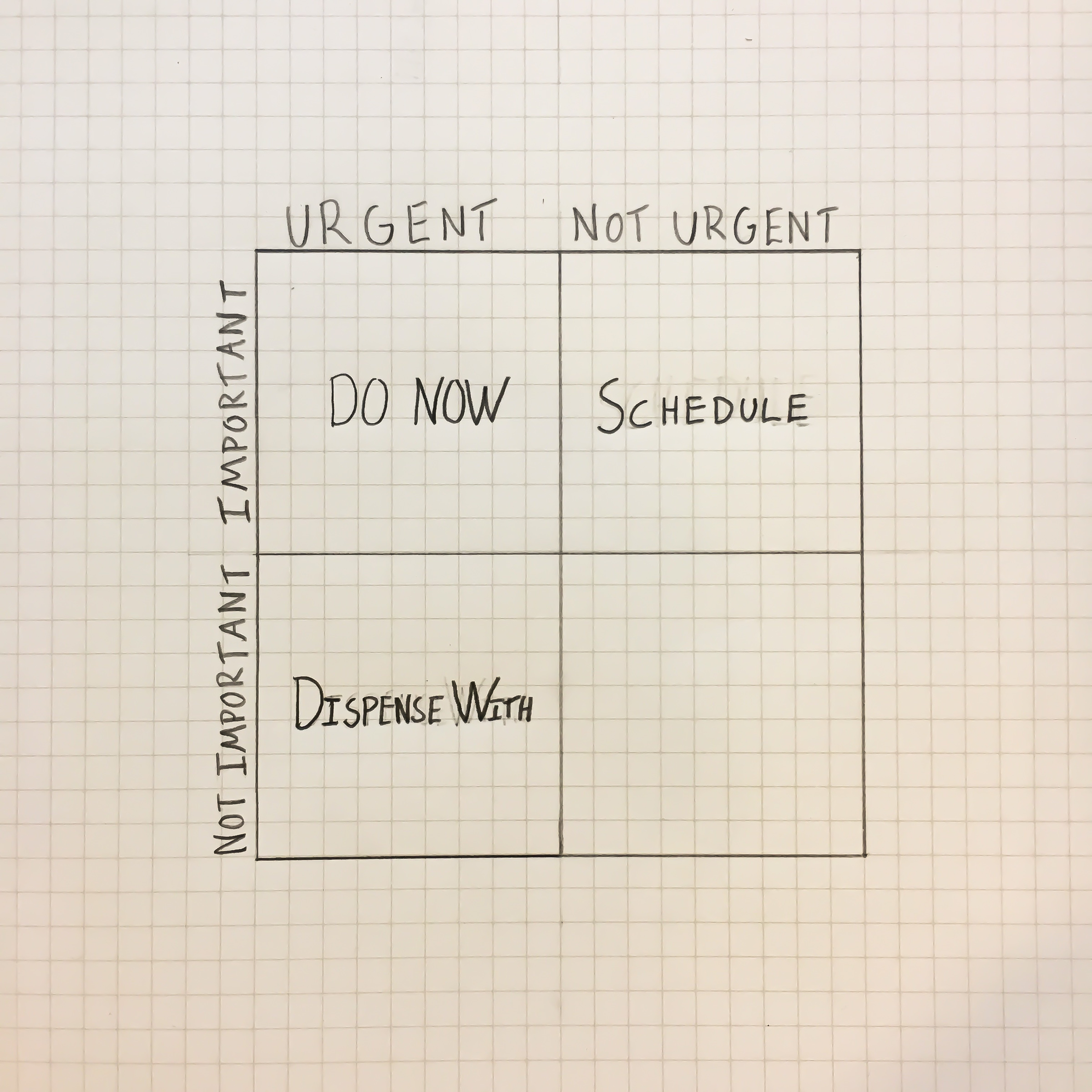
You—heart racing, silent sweating, minutely watched, shoulders hunching—try not to panic.
If you're called on (and you will be called on, without warning), and if it is something deceptively simple, and if it is something deceptively simple that simply deceives you, and you botch it, what will they all think? If you can't sing even that what are you doing with your life? You don't belong here. Soon everyone will know.
No. You must succeed. Everything depends on it.
This goes on for 90 minutes or so until Ear Training III is over. For that period of time, every fiber of your being is enslaved in blinkered devotion to the avoidance of your imminent destruction. I'll probably get a B in the class.

It's not clear that any of us are worried about failing Ear Training per se, nor are we particularly worried about the practical application of the skills. Some of them are useful, some not. Yet the fact that for 90 minutes (and hours of mounting dread beforehand) Ear Training III is the single most important thing in the world, betrays how our animal brains can lose perspective when fear and social pressure reach a fever pitch.
About two months in at Juilliard, I found that the things eating most of my time were the things I was most anxious about, and those that involved the most social pressure. This included Ear Training, class presentations, homework assignments for more intimidating teachers, and so on. Things I was more comfortable with, like composing, were getting pushed to the bottom of the list, even though I would tell you they're my top priority.
So I made an Eisenhower box (named after Dwight Eisenhower who said, "What is important is seldom urgent and what is urgent is seldom important") for myself. It looks something like this:

(I'm not always sure what to do with the bottom right. The efficiency guru types would put “delete,” but that seems kind of joyless, no? Some of the best things in life are not important and not urgent—playing with a dog, say.)
Drawn out like this, the solution becomes quite clear: sort the anxious stuff you're treating as urgent and important into the bottom left (from do now to dispense with). However cruel and undedicated dispensing with, say, an Ear Training assignment might sound, I had for many weeks been effectively dispensing with composition: leaving it till the end of the day by which point I was exhausted from everything else. To say no to something is to say yes to the rest of your life.
And yet there are many things of lesser importance that simply must be done, and for them I like the industrial idea of the Minimum Viable Product (MVP), which, yes, does seem like a fancy way of saying “half-ass it,” but with the important addition of 'Viable.' And there's a big difference between doing a focused but minimal job, and a sprawling half-assed one.

While the idea of the MVP might get a bad rap in pop culture, in business it's actually quite revered. Eric Ries, who coined the term, described it thus: “A Minimum Viable Product is that version of a new product which allows you to collect the maximum amount of validated learning with the least effort.” In other words, it's “the smallest thing you can build that lets you quickly make it around the build/measure/learn loop.” In that sense, making that Ear Training assignment an MVP gives you the biggest learning bang for your time and energy buck. This leaves you the space to go above and beyond—creating the maximum viable product—in your most important work.
All of this is easier said than done. Fear and external pressure won't always be reasoned with. But to have concrete reasoning for why Ear Training III is not your top priority—because you know what is—and a useful, but achievable lower standard, puts your feet on solid ground when things don't come out right. And try not to forget about the empty box in the bottom right. We are not factories.
Attend a student performance on campus.